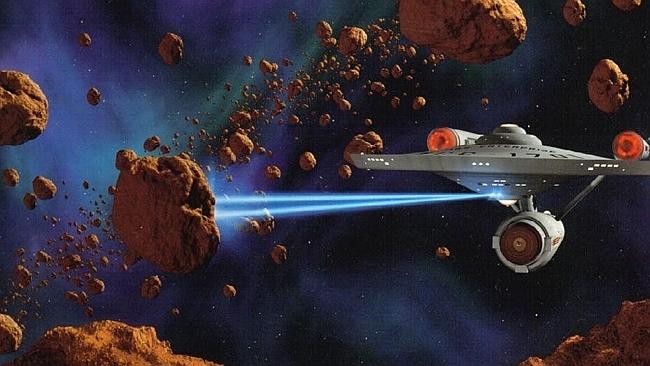Law allowing private mining of asteroids raises questions for global community
BARACK Obama has signed a bill allowing companies to mine asteroids and planets for valuable minerals. But detractors say it breaks international law.

BARACK Obama has signed a law giving private companies legal ownership of materials they extract from asteroids and the moon but detractors say it violates an international space treaty.
The recently inked US law has some observers predicting a galactic “gold rush” era as some asteroids contain significant amounts of rare metals such as platinum, rare-earth elements, and other useful materials. The bill also extends the time private corporations can build spaceships without any government oversight, and is designed to speed up the rate of private sector space exploration.
“This is the single greatest recognition of property rights in history,” co-founder of asteroid mining company Planetary Resources said in a statement last month.
The company enjoyed a swift bump in value after the law was passed on November 25, but while many experts are espousing the necessity of asteroid mining, hopeful space prospectors could face a challenge to their newly minted right to extract and keep planetary minerals.
Why Asteroid Mining May Be Critical For Our Future https://t.co/JBCkBhS28u
— John Wang (@JohnJxwang) December 11, 2015Great #Tegenlicht meetup on Mars colonization and Asteroid mining with @pvloemans kicking-off the stage. pic.twitter.com/dGyp3BtXyn
— Daniel Gaspersz (@danielgaspersz) December 9, 2015Laying claim to ownership of a planet is outlawed in the 1967 International Space Treaty, but laws around mining are far more ambiguous. It could take a legal challenge to settle the question.
It is also more than likely another country will take umbrage with Obama giving the right to US corporations to exploit resources that — according to the spirit of international law — belong to all humanity. They could dispute the law in international court.
Its text states: “Any asteroid resources obtained in outer space are the property of the entity that obtained them, which shall be entitled to all property rights to them, consistent with applicable federal law and existing international obligations.”
However, experts say such a declaration is in breach of the 1976 treaty.
“It is my opinion that any US entity obtaining asteroid resources would be in contravention of international law, as would the government for permitting it,” the director of the London Institute of Space Policy and Law told Motherboard.
The sentiment was echoed by Ram Jakhu, professor of Air and Space Law at McGill University in Canada, who told the Canadian Broadcast Company he thinks the new law is direct violation of the treaty.
“My view is that natural resources [in space] should not be allowed to be appropriated by anyone — states, private companies, or international organisations,” he said.
But for the time being, the race is on.




